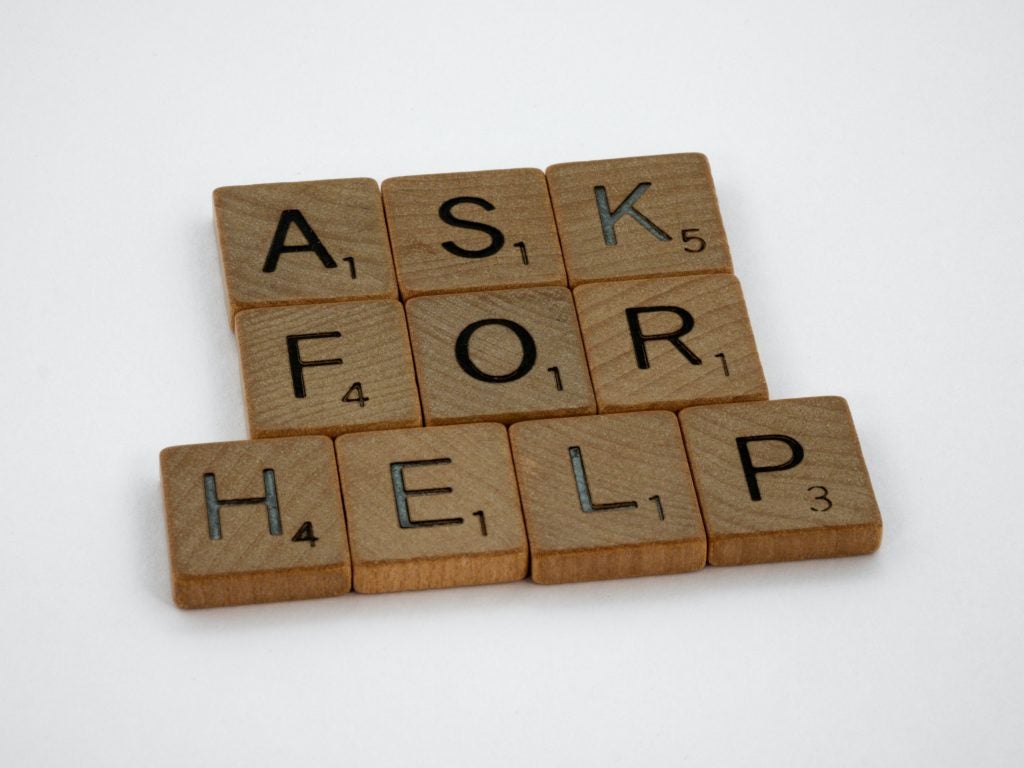
Pedophilia is a paraphilia that generally refers to sexual attraction towards children. The condition is split into two categories: pedophilia and pedophilic disorder, with the latter being more serious. Pedophilic disorder usually refers to people who have experienced extreme fantasies, often consuming child pornography, or to those who have acted on their sexual fantasies of children, whereas pedophilia is a general sexual attraction to children.1 Hebephilia is a similar condition that consists of sexual attraction to pubescent children, as opposed to prepubescent children.
Pedophilia is a highly under-researched condition. Most available sources say that pedophiles account for in between 1% and 5% of the male population, with pedophilia being less common in females than in males, though it is very difficult to find accurate data.1 In many societies, pedophilia is considered a “taboo” topic and can be difficult to discuss. It can also be challenging to seek out or receive treatment in some cases. Professional therapists are often required to report certain information even if a patient discloses it under the pretense of confidentiality. Therefore, besides general information on pedophilia, this article includes information on self-help methods and clinical treatment options for readers struggling with the condition, in addition to a list of resources found at the bottom of this page.
Table of Contents
Causes
The causes of pedophilia are currently unknown. In general, commonly accepted scientific explanations for any type of attraction do not exist yet, so pedophilia cannot just be explained. Additionally, pedophilia cannot be “cured.” In many cases, it is a lifelong attraction. Through research, however, scientists have found a few common factors that may be related to the condition. There are two main types of evidence that are often correlated with pedophilia: biological and social/psychological. Regarding the biological perspective, some scientists have found correlations between pedophilia and higher levels of hormones that are related to aggression or masculinity, such as testosterone, during early development and in later life as well.2 It has also been found that pedophiles may have slightly different physical brain structure, specifically in areas related to self-control or hypersexuality.1 Besides biological theories, it is also possible that pedophilia could be caused by childhood sexual abuse or by learned behaviors.2 For example, a child could witness or experience non-normal sexual behavior and could assume it is normal, and could subsequently develop pedophilic tendencies. Additionally, an abused child could have trouble developing social skills or normal relationships and could develop pedophilia.
Negative Impacts
There are quite a few possible detrimental effects of pedophilia on the self, such as social isolation. This could be caused by feeling uncomfortable around children in public, not having adequate social skills to function comfortably around others, and more. Pedophilia may also prevent the development of a healthy sex life with other adults of similar age.
Many pedophiles also exhibit anxiety or mood disorders, addiction, or personality disorders in addition to pedophilia.1 It is unknown whether these conditions are simply common in pedophiles or if they are caused by the paraphilia, but they seem to be prevalent. All of these conditions may interact negatively with the symptoms that a pedophile already faces and may make social interaction even more difficult.

Pedophilia also negatively affects children, directly and indirectly, through child sexual abuse and child pornography. Many aspects of children’s bodies are not fully developed; they are often not aware of changes and are very often unaware of their reproductive systems and organs. Because of this, and many other factors, children often do not understand what sexual assault is and do not know how to react to it. Even though they might not understand what is going on, sexual abuse can have lifelong impacts on their physical, emotional, and mental health, as most kinds of abuse do. Common physical effects consist of general injury (especially to reproductive organs), the spread of STIs, urinary tract infections (UTIs), early pregnancy, and more. These symptoms can be short term or lifelong. Additionally, survivors of childhood sexual abuse (CSA) often experience depression, post-traumatic stress disorder (PTSD), self-image issues, and may have trouble developing relationships with peers, family members, or romantic or sexual partners.
Legality and Professional Therapy
Many pedophiles have trouble seeking help because they are worried about laws governing pedophilia. Usually, professionals have policies of confidentiality for private therapy sessions; however, when it comes to pedophilia, they are often required to report a pedophile if the patient has acted on their feelings or if the professional deems that a child is in danger.3 These laws serve to protect potential victims.
While it may not be “safe” for pedophiles to share information with therapists about pedophilic actions they’ve taken, it is still legal for people to share about pedophilic feelings with therapists. There are plenty of professional methods for assisting with this condition. “Talk” therapies, or cognitive-behavioral psychotherapy methods, may be very beneficial for patients, while some people have found that medication that reduces sex drive, or a combination of both methods, works well for them.2 Another way to find help is to seek out a support group. There are multiple organizations that provide assistance and a community for pedophiles that are committed to avoiding the sexual abuse of children. Support groups may help people to better understand their condition and can often provide exposure and education on how to better deal with their urges. A few links to support group organizations are provided under the heading “Resources” at the bottom of this page.
Self-Help Methods
This section is directed specifically to pedophiles in need of assistance and therefore uses the term “you” to refer to the reader. We would also like to state that we are not medical professionals and cannot recommend a personalized treatment plan. While we present these methods as options, we encourage our readers to do their research and seek help. We also do not personally endorse these methods or attest to their effectiveness.
Because seeking help from a professional can be very intimidating or risky for a pedophile, self-help methods may sometimes be a more comfortable option. There are quite a few different techniques that work for people with the condition. Three common options include masturbatory reconditioning, social skills learning, and cognitive self-direction.
Masturbatory Reconditioning
The goal of masturbatory reconditioning is to leave behind your old sexual conditioning associated with children and shift to being sexually aroused by adults. The method consists of masturbating to socially acceptable “turn-ons,” like images of naked adults. Having a physical image from the internet or explicit magazines to concentrate on helps to prevent the mind from wandering to fantasies of children instead. By spending time masturbating to adult images and focusing on adult characteristics in the pictures, such as fully-grown genital organs or breasts, a person may be able to start fantasizing about or imagining adults when they next have a sexual experience without a physical image to focus on.
If this method does not work for you, you can also try out a different form of masturbatory reconditioning. In this method, a person begins by masturbating to fantasies they’ve had before (i.e. of children), but as they get closer to orgasm, they switch their focus to images of adults. Using physical copies of images of adults may also be beneficial in this situation because just imagining adults in a sexual way may be difficult at first. As the days go by, your goal is to change the time during masturbation at which you shift from child to adult images so that less and less time will be focused on children and more time will be focused on adult images. Ideally, you will eventually transition to thinking only about adults during masturbation and not think about children at all.
Do not feel that you have to rush through these masturbatory exercises. If you try to change too fast, you may become frustrated that the therapy isn’t working as expected and give up on it. You will need to take your time, perhaps spending weeks or months at each stage, before gradually shifting to images of adults. If this therapy is done correctly, you may find that you no longer desire young children but have increasing sexual interest in adults. At each step, pat yourself on the back, for you are on your way to a healthy and fulfilling sex life.
Social Skills Learning
Many pedophiles are interested in children because they do not have all of the social skills they need to interact comfortably with people of their own age. In order to develop a happy and gratifying sex life, it may be worthwhile to become involved in all sorts of social activities where you meet and interact with people in your own age group.
The easiest way to develop social skills is simply to enter more social situations. Taking part in new activities or in some that you already enjoy, preferably with people your own age, will give you experience and practice on how to interact with others. Looking up activities, local organizations, or clubs on the internet is an easy way to find how to get involved. If this sounds too difficult or you do not feel like you’ve improved over time, a great option would be to see a health professional. Therapists can help you with developing general social skills so that you don’t feel alone or want to just give up on the process.
Cognitive Self-Direction
Adults often naturally pay attention to their own thought processes and give themselves instructions if they see themselves start down a train of thought that might lead to some problematic activity. People who have strong temptations to do destructive or illegal behavior have to hone these self-monitoring skills to an especially high level. Many pedophiles who want to make sure that they never touch children in a sexual manner have to pay close attention to their thoughts whenever they are in the presence of children, see pictures of children, or notice that they are beginning to think about children for any reason. One strategy to deal with this issue is to create a list of alternative things to think about to distract yourself from thoughts of children and reorient yourself in a more positive direction. This list could be a “to-do” list, a list of interesting topics to think about, and more. You can try keeping a physical copy in your wallet or on your phone so that you can easily access it as well. Another option could be to start a conversation with a nearby adult. If you need extra motivation to stop thinking about children, thinking about the consequences of the possible actions you could take may help.
An important aspect of this exercise is self-encouragement. If a person succeeds in redirecting their thoughts, they should remember to congratulate themselves for regaining control. Positive reinforcement can be very beneficial in the growth process – praise from the self or from someone like a therapist can lead to repeated behavior.4
Concluding Remarks
Seeking help may be difficult for many at first. For some, it may feel easier to keep uncomfortable details to themselves; however, professional help may very likely make a positive difference in your life. Though the burden of the condition may be arduous, there are a multitude of ways to still live a fulfilling life as a person sexually attracted to children.
Resources

The following is not a complete and comprehensive list of all resources that exist. Researching organizations on the internet or with a professional may help you find something that works the best for you specifically.
Finding therapy/professional help
- Psychologytoday.com/us
- Malesurvivor.org/a-consumer-guide-to-therapists
- Wingsfound.org/find-the-right-therapist
Support for survivors of sexual assault
Resources and education for people sexually attracted to children
- B4uact.org
- Virped.org
- Pedo.help
- Cure-sort.org
- Cybersexualaddiction.com
- Dontoffendindia.org
- Sexhelp.com
- Dont-offend.org
Support for family members
- Nctsn.org/resources/coping-shock-intrafamilial-sexual-abuse-information-parents-and-caregivers
- Rainn.org/articles/self-care-friends-and-family
- Psychologytoday.com/us/blog/talking-about-trauma/201808/what-if-your-father-were-pedophile
References
- Tenbergen, Gilian, et al. “The Neurobiology and Psychology of Pedophilia: Recent Advances and Challenges.” Frontiers in Human Neuroscience, vol. 9, 2015.
- “Pedophilia.” Psychology Today, Sussex Publishers, 2019.
- “Mandatory Reporters of Child Abuse and Neglect.” Child Welfare Information Gateway, U.S. Department of Health and Human Services, 2019.
- Ackerman, Courtney E. “Positive Reinforcement in Psychology (Definition + 5 Examples).” PositivePsychology.com, PositivePsychology.com, 2019.
Last Updated: 17 February 2020.
